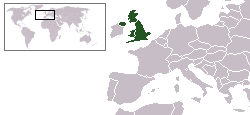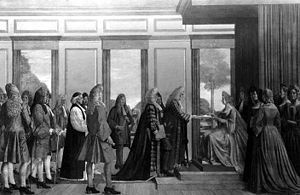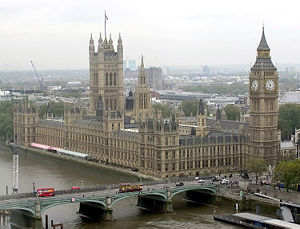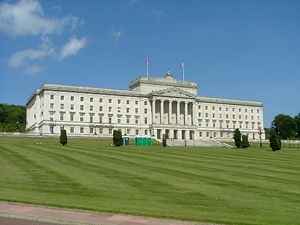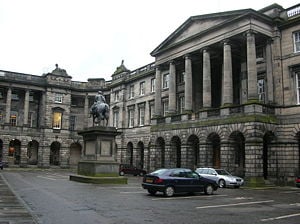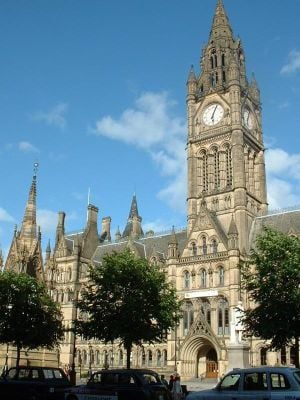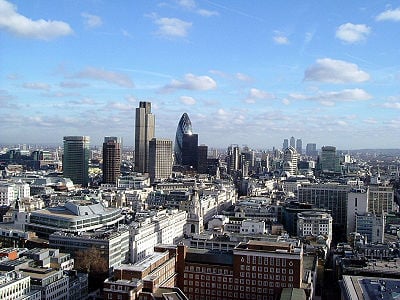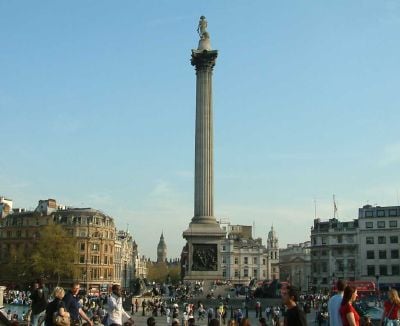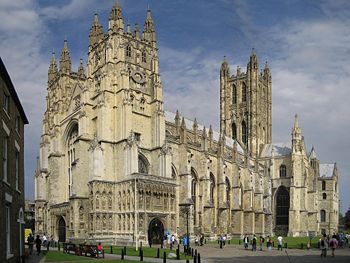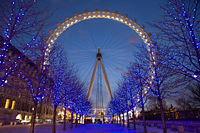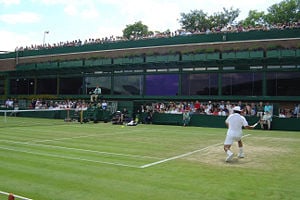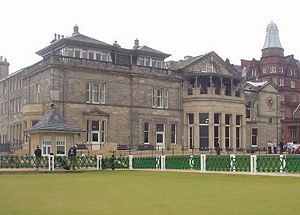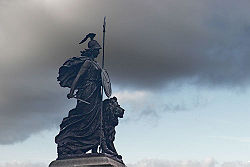Difference between revisions of "United Kingdom" - New World Encyclopedia
Mike Butler (talk | contribs) |
Mike Butler (talk | contribs) |
||
| Line 153: | Line 153: | ||
[[Image:Elizabeth II, Buckingham Palace, 07 Mar 2006.jpeg|thumb|left|200px|[[Queen Elizabeth II]].]] | [[Image:Elizabeth II, Buckingham Palace, 07 Mar 2006.jpeg|thumb|left|200px|[[Queen Elizabeth II]].]] | ||
[[Image:Winston Churchill.jpg|right|thumb|200px|[[Winston Churchill]], [[Prime Minister]] 1940–1945 and 1951–1955.]] | [[Image:Winston Churchill.jpg|right|thumb|200px|[[Winston Churchill]], [[Prime Minister]] 1940–1945 and 1951–1955.]] | ||
| + | ===Structure=== | ||
The United Kingdom is a [[constitutional monarchy]]. Queen Elizabeth II has been chief of state since February 6, 1952, while the Heir Apparent is Prince Charles, the son of the queen, born 14 November 1948. The monarchy is hereditary Prime Minister Gordon Brown has been head of government since June 27, 2007. After legislative elections, the leader of the majority party or the leader of the majority coalition is usually the prime minister, who appoints a cabinet. | The United Kingdom is a [[constitutional monarchy]]. Queen Elizabeth II has been chief of state since February 6, 1952, while the Heir Apparent is Prince Charles, the son of the queen, born 14 November 1948. The monarchy is hereditary Prime Minister Gordon Brown has been head of government since June 27, 2007. After legislative elections, the leader of the majority party or the leader of the majority coalition is usually the prime minister, who appoints a cabinet. | ||
| Line 207: | Line 208: | ||
The [[United Kingdom Special Forces]], principally the [[Special Air Service]] (SAS) and [[Special Boat Service]] (SBS), but including others, provide troops trained for quick, mobile, military responses in [[counter-terrorism]], land, maritime and amphibious operations, often where secrecy or covert operations are required. The Royal Navy is the second largest navy in the western world in terms of gross tonnage. The last war in which the British military fought alone was the [[Falklands War]] of 1982, with full-scale combat operations lasting almost three months. | The [[United Kingdom Special Forces]], principally the [[Special Air Service]] (SAS) and [[Special Boat Service]] (SBS), but including others, provide troops trained for quick, mobile, military responses in [[counter-terrorism]], land, maritime and amphibious operations, often where secrecy or covert operations are required. The Royal Navy is the second largest navy in the western world in terms of gross tonnage. The last war in which the British military fought alone was the [[Falklands War]] of 1982, with full-scale combat operations lasting almost three months. | ||
| + | |||
| + | ===Foreign relations=== | ||
| + | The United Kingdom is one of the permanent members of the [[United Nations Security Council]]. It is also a large member state of the [[European Union]], and is one of the three "big powers" along with Germany and France. The United Kingdom also has close relations with the [[United States]], the [[Special Relationship]]. Britain's close allies outside of [[Europe]] include members of the [[Anglosphere]] and [[Commonwealth of Nations]], a legacy of the [[British Empire]]. With its membership of the [[G8]] and [[NATO]], Britain has a certain influence in international institutions. Britain's global presence is amplified further through its trading relations and its armed forces, which maintains approximately 80 military installations and other deployments around the globe | ||
==Economy== | ==Economy== | ||
Revision as of 20:57, 13 August 2007
| United Kingdom of Great Britain and Northern Ireland1 |
||||||
|---|---|---|---|---|---|---|
|
||||||
| Motto: Dieu et mon droit (the Royal motto3) (French for "God and my right") |
||||||
| Anthem: God Save the Queen 4 |
||||||
| Capital | London | |||||
| Largest Most populous conurbation | Greater London Urban Area | |||||
| Official languages | English (de facto5) | |||||
| Government | Constitutional monarchy | |||||
| - | Queen | HM Queen Elizabeth II | ||||
| - | Prime Minister | The Rt Hon Gordon Brown MP (Labour) | ||||
| Formation | ||||||
| - | Union of the Crowns | 24 March 1603 | ||||
| - | Acts of Union | 1 May 1707 | ||||
| - | Act of Union | 1 January 1801 | ||||
| - | Anglo-Irish Treaty | 12 April 1922 | ||||
| EU accession | 1 January 1973 | |||||
| Area | ||||||
| - | Total | 244,820 km² (79th) 94,526 sq mi |
||||
| - | Water (%) | 1.34 | ||||
| Population | ||||||
| - | 2005 estimate | 60,209,5006 (21st) | ||||
| - | 2001 census | 58,789,194 | ||||
| GDP (PPP) | 2005 estimate | |||||
| - | Total | $1.833 trillion (6th) | ||||
| - | Per capita | $30,436 (18th) | ||||
| GDP (nominal) | 2005 estimate | |||||
| - | Total | $2.201 trillion (5th) | ||||
| - | Per capita | $37,023 (13th) | ||||
| Currency | Pound sterling (£) (GBP) |
|||||
| Time zone | GMT (UTC+0) | |||||
| - | Summer (DST) | BST (UTC+1) | ||||
| Internet TLD | .uk7 | |||||
| Calling code | +44 | |||||
| 1 In the UK, some other languages have been officially recognised as legitimate autochthonous (regional) languages under the European Charter for Regional or Minority Languages. In each of these, the UK's official name is as follows: Welsh: Teyrnas Unedig Prydain Fawr a Gogledd Iwerddon Scottish Gaelic: An Rìoghachd Aonaichte na Breatainn Mhòr agus Eirinn a Tuath Irish: Ríocht Aontaithe na Breataine Móire agus Thuaisceart Éireann Scots: Unitit Kinrick o Great Breetain an Northren Ireland Cornish: An Rywvaneth Unys a Vreten Veur hag Iwerdhon Glédh 2 There is also a variant for use in Scotland; see Royal coat of arms of the United Kingdom. 3 The Royal motto used in Scotland is Nemo Me Impune Lacessit (Latin: "No-one provokes me with impunity"). 4 See #Symbols below. It also serves as the Royal anthem. 5 In addition to English (use established by precedent), Welsh is recognised in Wales as a "language of equal standing"[citation needed]. Since 2005, Scottish Gaelic in Scotland has the status of "an official language of Scotland commanding equal respect to the English language" [2]. See also Languages in the United Kingdom. 6 Official estimate provided by the UK Office for National Statistics [3]. 7 ISO 3166-1 alpha-2 is GB, but .gb is unused. The .eu domain is also shared with other European Union member states. |
||||||
The United Kingdom of Great Britain and Northern Ireland (usually shortened to the United Kingdom, the UK, or Britain is a country and sovereign state that is situated in west Northern Europe.
The United Kingdom is a political union made up of three constituent countries: England, Scotland, Wales, and includes six of the nine counties of Ulster Northern Ireland. The United Kingdom also has several overseas territories, including Bermuda, Gibraltar, Montserrat and Saint Helena among others.
The dependencies of the Isle of Man and the Channel Islands, while possessions of the Crown and part of the British Isles, are not part of the United Kingdom.
A constitutional monarchy, the United Kingdom is a Commonwealth Realm, sharing the same person — Queen Elizabeth II — with the fifteen other Realms as monarch and head of state.
A member of the G8, the United Kingdom is a highly developed country with the fifth largest economy in the world and second largest in Europe, estimated at US$2.2 trillion. It is the third most populous state in the European Union with a population of 60.2 million.
After the end of the British Empire, the UK retained influence throughout the world because of the extensive use of the English language as well as through the world-spanning Commonwealth of Nations, headed by Queen Elizabeth II.
Geography
Located primarily on the island of Great Britain and in Northern Ireland, the United Kingdom is bounded by the Atlantic Ocean, the North Sea, the English Channel, the Celtic Sea, and the Irish Sea. The mainland is linked to France by the Channel Tunnel and Northern Ireland shares a land border with the Republic of Ireland.
With a land area of 94,526 square miles (244,820 square kilometres), the United Kingdom is slightly smaller than Oregon in the United States.
Most of England consists of rolling lowland terrain, divided east from west by more mountainous terrain in the Northwest (Cumbrian Mountains of the Lake District) and north (the upland moors of the Pennines) and limestone hills of the Peak District by the Tees-Exe line.
Scotland's geography] is varied, with lowlands in the south and east and highlands in the north and west, including Ben Nevis. There are many long and deep-sea arms, firths, and lochs. Scotland has nearly 800 islands, mainly west and north of the mainland, notably the Hebrides, Orkney Islands and Shetland Islands.
Wales (Cymru in Welsh) is mostly mountainous, the highest peak being Snowdon (Yr Wyddfa) at 3560 feet (1085 meters) above sea level. North of the mainland is the island of Anglesey (Ynys Môn). Northern Ireland, making up the north-eastern part of Ireland, is mostly hilly.
The 10 tallest mountains in the UK are all found in Scotland. The highest peaks is Ben Nevis (in the Nevis Range), at 4406 feet (1344 meters). There is no peak in England that is 3300 feet (1000 meters) or greater, the highest mountain being Scafell Pike in England's Lake District, at some 3208 feet (978 meters) The lowest point is in the Fens of East Anglia, in England, parts of which lie up to 13 feet (4 meters) below sea level.
In total, it is estimated that the UK is made up of over 1000 small islands, some being natural and some being man-made crannogs, which were built in past times using stone and wood and which were enlarged by natural waste building up over time.

The climate of the UK varies, but is generally temperate, though significantly warmer than some other locations at similar latitude, such as central Poland, due to the warming influence of the Gulf Stream. In general, the south is warmer and drier than the north.
The prevailing winds are south-westerly, from the North Atlantic Current. More than 50 percent of the days are overcast. There are few natural hazards, although there can be strong winds and floods, especially in winter.
Average annual rainfall varies from over 120 inches (3000 millimeters) in the Scottish Highlands down to 21.8 inches (553mm) in Cambridge. The county of Essex is one of the driest in the UK, with an average annual rainfall of around 24 inches (600mm) although it typically rains on over 100 days per year.
The highest temperature recorded in the UK was 101.3°F (38.5°C) at Brogdale, near Faversham, in the county of Kent, on August 10, 2003. The lowest was -17.0°F (27.2°C) recorded at Braemar in the Grampian Mountains, Scotland, on February 11, 1895.
The United Kingdom, along with the rest of Europe, has been hit by heat waves during the summer in recent years. The heat waves have been the reason for many deaths in the past years, with temperatures nearing the 104°F (40°C) mark.
The longest river in the UK is the River Severn, at 220 miles (354km) which flows through both Wales and England. The largest lakes are: Lough Neagh in Northern Ireland (147.39 square miles), Loch Lomond in Scotland 27.46 square miles), Lake Windermere in England (5.69 square miles) and 14.74 km²), and Lake Vyrnwy in Wales 3.18 square miles. As a result of its industrial history, the United Kingdom has an extensive system of canals, mostly built in the early years of the Industrial Revolution, before the rise of competition from the railways. The United Kingdom also has numerous dams and water reservoirs to store water for drinking and industry. The generation of hydroelectric power is rather limited, supplying less than two percent of British electricity, mainly from the Scottish Highlands.
Historically, much of the United Kingdom was forested. Since prehistoric times, man has deforested much of the United Kingdom.
Agriculture is intensive, highly mechanised, and efficient by European standards, producing about 60 percent of food needs with only one percent of the labour force. It contributes around two percent of GDP. Around two thirds of production is devoted to livestock, and one third to arable crops.
The UK has large coal, natural gas, and oil reserves, plus limestone, chalk, gypsum,silica, rock salt, china clay, iron ore, tin, silver, gold, lead, as well as arable land, wheat, barley, hill farms, sheep
The United Kingdom is reducing greenhouse gas emissions. It has met Kyoto Protocol target of a 12.5 percent reduction from 1990 levels and intends to meet the legally binding target of a 20 percent cut in emissions by 2010. Between 1998-1999 and 1999-2000, household recycling increased from 8.8 percent to 10.3 percent.
London is the capital city of England and the United Kingdom. The ancient City of London to which the name originally belonged still retains its tiny mediaeval boundaries; but the name "London" has long applied more generally to the whole metropolis which has grown up around it. London, with a population of 7.7 million, is today one of the world's leading business, financial and cultural centres, and its influence in politics, education, entertainment, media, fashion and the arts all contribute to its status as one of the major global cities
Edinburgh, with a population of 448,624 in 2001, is the capital of Scotland, Cardiff, with a population of 380,000 in 2007, is the capital of Wales, and Belfast, with a population of 579,554 in 2001, is the capital of Northern Ireland.
History
The present United Kingdom of Great Britain and Northern Ireland is the latest of several unions formed over the last 300 years. The Kingdom of Scotland and the Kingdom of England had existed as separate states with their own monarchs and political structures since the 9th century. The once independent Principality of Wales fell under the control of English monarchs from the Statute of Rhuddlan in 1284, becoming itself part of the Kingdom of England by the Laws in Wales Act 1535. [1] With the Act of Union 1707, the independent states of England and Scotland, having been in personal union since 1603, agreed to a political union as the Kingdom of Great Britain. [2]
The Act of Union 1800 united the Kingdom of Great Britain with the Kingdom of Ireland, which had been gradually brought under English control between 1541 and 1691, to form the United Kingdom of Great Britain and Ireland. [3] Independence for the now Republic of Ireland in 1922 followed the partition of the island of Ireland two years previously, with six of the nine counties of the province of Ulster remaining within the UK, which then changed to the current name in 1927. [4]
The dominant industrial and maritime power of the 19th century, the United Kingdom is often credited with being the nation that "created the modern world", [5] by playing a leading role in developing Western ideas of property, capitalism, and parliamentary democracy as well as making significant contributions to literature, the arts, and science and technology. At its zenith, the British Empire stretched over one-quarter of the Earth's surface and encompassed a third of its population, making it the largest empire in history. The first half of the 20th century, however, saw the Empire's strength seriously depleted from the effects of World War I and World War II. The second half witnessed the dismantling of the Empire and the United Kingdom rebuilding itself into the modern, prosperous, and technologically advanced nation it is today.
The United Kingdom has been a member of the European Union since 1973. The attitude of the present government towards further integration with this organisation is mixed [6], with the Conservative Party favouring a return of some powers and competencies to the state [7]. The government has yet to choose whether to adopt the Euro currency. Plans are to hold a referendum on the issue if and when five economic tests indicate that entry into the Eurozone would be beneficial. [8]
Government and politics
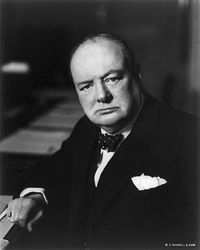
Structure
The United Kingdom is a constitutional monarchy. Queen Elizabeth II has been chief of state since February 6, 1952, while the Heir Apparent is Prince Charles, the son of the queen, born 14 November 1948. The monarchy is hereditary Prime Minister Gordon Brown has been head of government since June 27, 2007. After legislative elections, the leader of the majority party or the leader of the majority coalition is usually the prime minister, who appoints a cabinet.
The bicameral Parliament consists of a House of Lords, which has 618 seats consisting of approximately 500 life peers, 92 hereditary peers, and 26 clergy, and a House of Commons, which has 646 members elected by popular vote to serve terms of five-years, or less if the House is dissolved earlier. The parliament is traditionally considered to be "supreme" in that it is able to legislate on any matter and not bound by decisions of its predecessors.
In the House of Lords, elections are held only as vacancies in the hereditary peerage arise, whereas in the House of Commons, elections were last held in May 2005. In those elections, Labor took 35.2 percent of the vote, the Conservative took 32.3 percent, Liberal Democrats 22 percent, and others took 10.5 percent. In 1998, elections were held for a Northern Ireland Assembly. Because of unresolved disputes, the transfer of power from London to Northern Ireland came only at the end of 1999 and has been suspended four times, the latest occurring in October 2002 and lasting until May 2007. In 1999, there were elections for a Scottish Parliament and a Welsh Assembly.
The United Kingdom is one of the few countries in the world today that does not have a codified constitution, relying instead on traditional customs and separate pieces of constitutional law. The British system of government has been emulated around the world — a legacy of the British Empire's colonial past — most notably in the other Commonwealth Realms.
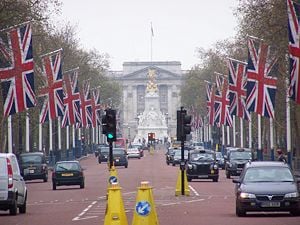
In the United Kingdom, the monarch has extensive theoretical powers, but his/her role is mainly, though not exclusively, ceremonial. The monarch is an integral part of Parliament (as the "Crown-in-Parliament") and theoretically gives Parliament the power to meet and create legislation. An Act of Parliament does not become law until it has been signed by the monarch (known as Royal Assent), although not one has refused assent to a bill that has been approved by Parliament since Queen Anne in 1708. Although the abolition of the monarchy has been suggested, the popularity of the monarchy remains strong in the United Kingdom. Support for a British republic usually fluctuates between 15 percent and 25 percent of the population, with roughly 10 percent undecided or indifferent.
Since the 1920s, the two largest political parties in British politics have been the Labour Party and Conservative Party. Though coalition and minority governments have been an occasional feature of Parliamentary politics, the first-past-the-post electoral system tends to maintain the dominance of these two parties, though each has in the past century relied upon a third party to deliver a working majority in Parliament. The Liberal Democrats, the third largest party, seek a reform to address the dominance of the two-party system.
Though many in the United Kingdom consider themselves "British" as well as "English", "Scottish" "Welsh", or "Irish" (and increasingly also "Afro-Caribbean", "Indian", or "Pakistani"), there has long been a widespread sense of separate national identities in the nations of Scotland and Wales and among the Catholic community in Northern Ireland. Independence for the Republic of Ireland in 1922 provided only a partial solution to what had been termed in the nineteenth century the "Irish Question", and competing demands for a united Ireland or continued union with Great Britain have brought civil strife and political instability up to the present day.
Though "nationalist" (as opposed to "unionist") tendencies have shifted over time in Scotland and Wales, with the Scottish National Party founded in 1934 and Plaid Cymru (the Party of Wales) in 1925, a serious political crisis threatening the integrity of the United Kingdom has not occurred since the 1970s. Scotland, Wales, and Northern Ireland each possess a legislature and government alongside that of the United Kingdom. However, this increased autonomy and devolution of executive and legislative powers has not contributed to a reduction in support for independence from the United Kingdom, with the rise of new pro-independence parties.
The resurgence in the Celtic language and identity, as well as "regional" politics and development, has contributed to forces pulling against the unity of the state. In Northern Ireland, there has been a significant decrease in violence over the last 20 years, though the situation remains tense, with the more hardline parties, such as Sinn Féin and the Democratic Unionists, now holding the most parliamentary seats.
The United Kingdom has three distinct systems of law. English law, which applies in England and Wales, and Northern Ireland law, which applies in Northern Ireland, are based on common-law principles. Scots law, which applies in Scotland, is a hybrid system based on both common-law and civil-law principles. The Act of Union 1707 guarantees the continued existence of a separate law system for Scotland.
The Appelate Committee of the House of Lords is the highest court in the land for all criminal and civil cases in England, Wales, and Northern Ireland, and for all civil cases in Scots law. Recent constitutional changes will see the powers of the House of Lords transfer to a new Supreme Court of the United Kingdom.
In England and Wales, the court system is headed by the Supreme Court of Judicature of England and Wales, consisting of the Court of Appeal, the High Court of Justice (for civil cases) and the Crown Court (for criminal cases). In Scotland, the chief courts are the Court of Session, for civil cases, and the High Court of Justiciary, for criminal cases, while the sheriff court is the Scottish equivalent of the county court. The Judicial Committee of the Privy Council is the highest court of appeal for several independent Commonwealth countries, the UK overseas territories, and the British crown dependencies.
Administrative subdivisions
The United Kingdom is divided into four parts, commonly referred to as the constituent countries. Each nation is further subdivided for the purposes of local government. The Queen appoints a Lord-Lieutenant as her personal representative in lieutenancy areas across the UK; this is little more than a ceremonial role. The following table highlights the arrangements for local government, lieutenancy areas and cities across the home nations of the UK:
Historically, the four nations were divided into counties as areas for local government administration. Although these are still used to some extent for this purpose and as geographical areas, they are no longer the sole basis for local government administration.
England has been divided into nine intermediate-level Government Office Regions. Each region is made up of counties and unitary authorities, apart from London, which consists of London boroughs. City status is governed by Royal CharterIn 2007, there were 66 British cities (50 in England, six in Scotland, five in Wales, and five in Northern Ireland).
The British crown has sovereignty over the Bailiwicks of Jersey and Guernsey, and the Isle of Man, known collectively as the crown dependencies. These are lands historically owned by the British monarch, but are not part of the United Kingdom itself. They are also not in the European Union. However, the Parliament of the United Kingdom has the authority to legislate for the dependencies, and the British government manages their foreign affairs and defence.
The UK also has 14 overseas territories around the world, the last remaining territories of the British Empire. The overseas territories are not considered part of the UK, but in some cases the local populations have British citizenship and the right to live in the UK.
Military
The armed forces of the United Kingdom are known as Her Majesty's Armed Forces. Their Commander-in-Chief is the British monarch, The Queen and they are managed by the Ministry of Defence. The armed forces are controlled by the Defence Council.
The United Kingdom fields one of the most powerful and comprehensive armed forces in the world. It has significant global capabilities, with total allied naval tonnage second only to the United States military and the third largest share of tactical combat aircraft to the US and France. The UK has the second or third highest military expenditure in the world, after the United States and China. The United Kingdom possesses a comprehensive nuclear arsenal, one of the small number of countries to do so, utilising the submarine-based Trident II ballistic missile system with nuclear warheads.
The British Armed Forces are active and regular participants in the North Atlantic Treaty Organisation (NATO) and other coalition operations.
The British Army had a reported strength of 102,440 in 2005, and the Royal Air Force a strength of 49,210. The 36,320-member Royal Navy operates the United Kingdom's nuclear deterrent, which consists of four Trident missile-armed submarines, while the Royal Marines are the Royal Navy's Light Infantry units for amphibious operations and for specialist reinforcement forces in and beyond the NATO area. This puts total active duty military troops in the 190,000 range, currently deployed in over 80 countries.
There are also reserve forces supporting the regular military. These include an army reserve, the Territorial Army (TA); the Royal Naval Reserve (RNR), Royal Marines Reserve (RMR) and the Royal Auxiliary Air Force (RAuxAF). About 9 percent of the regular armed forces is made up of women, a figure that is higher for the reserve forces.
The United Kingdom Special Forces, principally the Special Air Service (SAS) and Special Boat Service (SBS), but including others, provide troops trained for quick, mobile, military responses in counter-terrorism, land, maritime and amphibious operations, often where secrecy or covert operations are required. The Royal Navy is the second largest navy in the western world in terms of gross tonnage. The last war in which the British military fought alone was the Falklands War of 1982, with full-scale combat operations lasting almost three months.
Foreign relations
The United Kingdom is one of the permanent members of the United Nations Security Council. It is also a large member state of the European Union, and is one of the three "big powers" along with Germany and France. The United Kingdom also has close relations with the United States, the Special Relationship. Britain's close allies outside of Europe include members of the Anglosphere and Commonwealth of Nations, a legacy of the British Empire. With its membership of the G8 and NATO, Britain has a certain influence in international institutions. Britain's global presence is amplified further through its trading relations and its armed forces, which maintains approximately 80 military installations and other deployments around the globe
Economy
The British economy is the home of the Anglo-Saxon economic model, focusing on the principles of liberalisation, the free market, "common law" relating to property, and low taxation and regulation. Based on market exchange rates, the United Kingdom is the fifth largest economy in the world; the second largest in Europe after Germany, and the sixth-largest overall by purchasing power parity (PPP) exchange rates.
The British were the first in the world to enter the Industrial Revolution, and, like most industrialising countries at the time, initially concentrated on heavy industries such as shipbuilding, coal mining, steel production, and textiles. The empire created an overseas market for British products, allowing the United Kingdom to dominate international trade in the nineteenth century. However, as other nations industrialised and surplus labour from agriculture began to dry up, the United Kingdom started to lose its economic advantage. As a result, heavy industry declined throughout the twentieth century. The British service sector, however, has grown substantially, and now makes up about 73 percent of GDP.
In the 1980s, under the Government of Margaret Thatcher, most state-owned enterprises in the industrial and service sectors, which since the 1940s had been nationalised, were privatised. The British Government now owns very few industries/businesses apart from the Post Office and a few others.
The British economy has in recent years seen the longest period of sustained economic growth for more than 150 years, and is one of the strongest European Union economies in terms of inflation, interest rates and unemployment, all of which remain relatively low. However, in common with the economies of other English-speaking countries, it has higher levels of income inequality than some European countries.
The service sector of the United Kingdom is dominated by financial services, especially in banking and insurance. London is one of the world's largest financial centres with the London Stock Exchange, the London International Financial Futures and Options Exchange, and the Lloyd's of London insurance market all based in the city. It also has the largest concentration of foreign bank branches in the world. In the past decade, a rival financial centre in London has grown in the Docklands area, with HSBC, Citigroup, and Barclays Bank all relocating their head offices there. The Scottish capital, Edinburgh also has one of the large financial centres of Europe
Tourism is very important to the British economy. With over 27 million tourists a year, the United Kingdom is ranked as the sixth major tourist destination in the world.
The British manufacturing sector, however, has greatly diminished since World War II. It is still a significant part of the economy, but only accounted for one-sixth of national output in 2003. The British motor industry is a significant part of this sector, although all large-volume producers are now foreign-owned. Civil and defence aircraft production is led by the United Kingdom's largest aerospace firm, BAE Systems, and the pan-European consortium known as Airbus. Rolls-Royce holds a major share of the global aerospace engines market. The chemical and pharmaceutical industry is also strong in the UK, with the world's second and third largest pharmaceutical firms (GlaxoSmithKline and AstraZeneca, respectively) being based in the UK.
The United Kingdom's agriculture sector is small by European standards, accounting for only 0.9 percent of GDP. The UK though has large coal, natural gas, and oil reserves. Primary energy production accounts for about 10 percent of Gross domestic product (GDP), one of the highest shares of any industrial state.
The currency of the UK is pound sterling, represented by the symbol £. The Bank of England is the central bank and is responsible for issuing currency, although banks in Scotland and Northern Ireland retain the right to issue their own notes, subject to retaining enough Bank of England notes in reserve to cover the issue. The UK chose not to join the Euro on the currency's launch, although the government has pledged to hold a public referendum for deciding membership if "five economic tests" are met.
Government involvement over the economy is exercised by the Chancellor of the Exchequer who heads HM Treasury, but the Prime Minister, is First Lord of the Treasury (the Chancellor of the Exchequer being the Second Lord of the Treasury). However since 1997, the Bank of England, headed by the Governor of the Bank of England, has control of interest rates and other monetary policy. The UK government has greatly increased public sector spending (i.e.: government spending of taxes) since 1995, and annual spending on investment in infrastructure has grown from £5.6-billion in 1997 to £29-billion in 2006.
Exports totalled $468.8-billion in 2006. Export commodities included manufactured goods, fuels, chemicals, food, beverages, and tobacco. Export partners included the United States 13.9 percent, Germany 10.9 percent, France 10.4 percent, Ireland 7.1 percent, Netherlands 6.3 percent, Belgium 5.2 percent, and Spain 4.5 percent. Imports totalled $603-billion. Import commodities included manufactured goods, machinery, fuels, and foodstuffs. Import partners included Germany 12.8 percent, the United States 8.9 percent, France 6.9 percent, Netherlands 6.6 percent, China 5.3 percent, Norway 4.9 percent, and Belgium 4.5 percent.
Per capita GDP was $30,436, in 2005, a rank of 18th. Unemployment rate 2.9 percent (2006 est.) and 17 percent lived below the poverty line in 2002.
Demographics
At the 2001 Census, the United Kingdom's population was 58,789,194, the third-largest in the European Union (behind Germany and France) and the twenty-first largest in the world. This had been estimated up to 59,834,300 by the Office for National Statistics in 2004. Two years later it had increased to 60.2 million, largely from net immigration, but also because of a rising birth rate and increasing life expectancy — of 78.7 years for the total population in 2007. Its overall population density is one of the highest in the world. About a quarter of the population lives in England's prosperous south-east and is predominantly urban and suburban, with an estimated 7,517,700 in the capital of London.
The United Kingdom has amongst the highest immigration rates in Europe, along with Italy and Spain [9] it is now believed that the percentage of 'ethnic minorities' is some 9% [10]of the total UK population. In some UK cities the percentage of 'minority groups' is large but is still less than half, for example; Birmingham (UK's 2nd largest city) has 29.6% [11], Leicester 36% [10]. The latest figures (for 2004) show a record level of immigration, with net migration to the UK of 223,000. [12] The latest wave of immigration to hit the UK began in May 2004 when the European Union was expanded. From May 2004 to June 2006, around 600,000 people from Central and Eastern Europe immigrated to the UK to work. This figure is for arrivals only and does not take account of people leaving, hence net migration is likely to be lower.[13] In 2004 net migration from EU states stood at 74,000. [14] In addition, there are a large number of Indians, mainly from northern India, who make up about 2.0% of the population.[15]
Ethnicity
Located on a group of islands close to Continental Europe, the lands now constituting the United Kingdom have been subject to many invasions and migrations, especially from Scandinavia and the continent, including Roman occupation for several centuries. Present day Britons are descended mainly from the varied ethnic stocks that settled there before the eleventh century. The pre-Celtic, Celtic, Roman, Anglo-Saxon, and Norse influences were blended on Great Britain under the Normans, Scandinavian Vikings who had lived in Northern France. Between the various constituent countries, there has been sufficient internal migration to mix the population.
Immigration has come through interaction with continental Europe and international ties forged by the British Empire. Constant waves of immigration hit the UK, with Europe, Africa and South-East Asia being the biggest areas from where people emigrate. In the 2001 Census, 7.9 percent of the UK's population identified themselves as an "ethnic minority".
Ethnicity, as detailed in the 2001 UK Census: White British, 85.67 percent; white (other), 5.27 percent; Indian, 1.8 percent; Pakistani, 1.3 percent; mixed race, 1.2 percent; white Irish, 1.2 percent; black Caribbean, 1.0 percent; black African, 0.8 percent; Bangladeshi, 0.5 percent; Asian (non-Chinese), 0.4 percent; British Chinese, 0.4 percent; other, 0.4 percent; and black (others), 0.2 percent;
Religion
Unlike many countries today, which are officially secular, the UK is an officially Christian country. This is reflected throughout British public life, for instance, there are established state churches in England and Scotland and the Head of State is a Christian monarch crowned by an Arch-bishop in a church. British society is said to belong to the Judaeo-Christian tradition.
A majority of Britons, 72 percent, identify themselves as Christian. Christianity was introduced to Britain by the Romans. Despite this, a relatively small proportion of the population attends public worship on a weekly basis. The United Kingdom has one of the lowest levels of public worship attendance in the world, with less than 8 percent of people attending any form of worship on a regular basis (of whom the majority are of middle-aged and older generations).
Each home nation has its own church hierarchy. The Church of England is the officially established Christian church in England, and acts as the "mother" and senior branch of the worldwide Anglican Communion. Originally established as part of the Roman Catholic Church in 597C.E. by Augustine of Canterbury on behalf of Pope Gregory I, the Church split from Rome in 1534 during the reign of Henry VIII of England. The Church of England is a state church, and some of her bishops sit in the House of Lords. The British monarch is required to be a member of the Church of England under the Act of Settlement 1701 and is the Supreme Governor. Roman Catholics are expressly forbidden from becoming monarch, stemming from conflict over the crown and whether Britain was in the past, Catholic or Protestant. The Church of England is based at Canterbury Cathedral and the Archbishop of Canterbury is the senior clergyman.
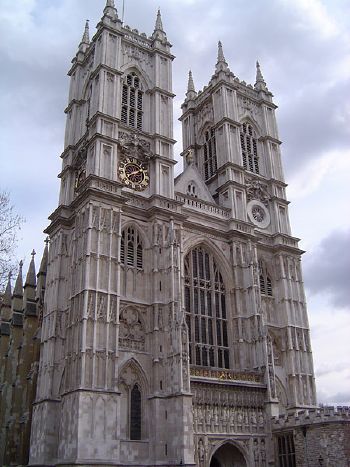
The Church of Scotland (known informally as The Kirk) is the national church of Scotland. It is a Presbyterian church and is not subject to state control. The British monarch is an ordinary member, although the monarch is required to swear an oath to "defend the security" of the Church at their coronation. Splits in the Church since the Reformation have led to the creation of various other Presbyterian churches in Scotland including the Free Church of Scotland and the Free Presbyterian Church of Scotland.
In Wales, the Church in Wales was disestablished in the 1920s, although it remains in the Anglican community. The Church of Ireland was disestablished in the nineteenth century.
The Roman Catholic Church is the second largest denomination of Christianity in the UK. After the Reformation, strict laws were passed against Catholics; these were removed by the Catholic Emancipation laws in the 1850s. The Catholic hierarchy is separate in England and Wales, Scotland.
In Northern Ireland the Catholic Church in Ireland is the largest single denomination. The Presbyterian Church in Ireland is the largest Protestant denomination and is in terms of theology and history very closely linked to the Church of Scotland. Other large Christian groups are the Methodists and the Baptists.

Modern day Britain is much more diverse in terms of religion. As well as Christianity, Islam and Hinduism have many followers in the UK. Sikhism, Judaism and other religions have smaller numbers.
Muslims are believed to number over 1.8 million, with many of them living in towns and cities including London, Birmingham, Bradford and Oldham. Mosques are a common sight in some parts of modern day Britain. The biggest groups of British Muslims are of Pakistani, Indian and Bangladeshi origin. More recently, the wave of Somali and Middle-Eastern asylum seekers has increased Britain's Muslim population. The 2006 controversy over the burqa reflects a split between some Britons who are questioning the extent to which Islam is compatible with British society, and others who are happy with the widespread presence of Islam in Britain.
The religions of Indian origin, like Hinduism and Sikhism in Britain are also increasing in number, with over 500,000 Hindus and 320,000 Sikhs in the country. However, these figures are likely to have increased, as they are based on the 2001 census.
Census data regarding religious belief: Christian 71.6 percent, Muslim 2.7 percent, Hindu 1.0 percent, Sikh 0.6 percent, Jewish 0.5 percent, Buddhist 0.3 percent, other religion 0.3 percent, not stated 7.3 percent, no religion 15.5 percent. A total of 76.8 percent of the population adhere to some religion.
Language
While the UK does not have an official language, the predominant spoken language is English. This is a West Germanic language, descended from Old English, which features a large number of borrowings from Norman French. The other main indigenous languages are the the Celtic languages of the British Isles. These fall into two groups: the P-Celtic languages (Welsh and the Cornish language); and the Q-Celtic languages (Irish and Scottish Gaelic).
The English language has spread to all corners of the world (primarily because of the British Empire) and is referred to as a "global language". Worldwide, it is taught as a second language more than any other. The United Kingdom's Celtic languages are also spoken by small groups around the globe, mainly Gaelic in Nova Scotia, Canada, and Welsh in Patagonia, Argentina.
Additional indigenous languages are Scots (which is closely related to English); Romany; and British Sign Language (Northern Ireland Sign Language is also used in Northern Ireland). Celtic dialectal influences from Cumbric persisted in Northern England for many centuries, most famously in a unique set of numbers used for counting sheep.
Immigrants, especially from the Commonwealth, speak many other languages, including Gujarati, Hindi, Punjabi, Urdu, Bengali, Cantonese, Turkish and Polish. The United Kingdom has the largest number of Hindi and Punjabi speakers outside Asia.
Men and women
About half of British women work, and of these, half are part-time workers. The ideal of gender equality is widely shared, but inequality is evident in access to occupations by women and men, pay levels for similar kinds of work, and in the allocation of domestic tasks.
Marriage and the family
Premarital sex and unmarried cohabitation are widely accepted. However, single motherhood caused by unstable cohabiting relationships, or marital breakdown, or as a means of obtaining welfare, is seen as a big problem because of its drain on the welfare budget, and subsequent problems of child abuse, and juvenile delinquency, rather than as a moral question. Although media reports claim that increased rates of unmarried cohabitation and divorce is evidence the nuclear family is in decline, about 70 percent of adults value regular contact with close family members. People over the age of 45 tend to be more family-centered than are younger people. Although television, the internet, and double-income families have all changed family life, most seem to regard their place in a multigenerational family as important.
Education
- Further information: Education in the United Kingdom, Education in England, Education in Scotland, Education in Wales and Education in Northern Ireland
The United Kingdom's high literacy rate (99%) is attributable to universal public education introduced for the primary level in 1870 and secondary level in 1900 (except in Scotland where it was introduced in 1696). Education is compulsory from the ages of 5 to 16. About one-fifth of British students go on to post-secondary education (18+).
The United Kingdom contains some of the world's leading, and oldest, seats of higher education [16], such as the ancient multifaculty universities at Oxford and Cambridge. It has produced many great scholars, scientists and engineers including Sir Isaac Newton, Adam Smith, Kelvin, Sir Humphry Davy, Joseph John Thomson, Michael Faraday, Charles Darwin, Alexander Fleming, Francis Crick, Sir Joseph William Bazalgette and Isambard Kingdom Brunel; the nation is credited with numerous scientific discoveries including hydrogen, gravity, the electron, structure of DNA, antibiotics and inventions including the chronometer, steam locomotive and the modern railway, vaccination, television, electric lighting, the electric motor, the screw propeller, the internal combustion engine, the jet engine, the modern bicycle, the electronic computer, along with the later development of the World Wide Web.
In 2006, it was reported that the UK was the most productive source of research after the United States; with the UK producing 9% of the world's scientific research papers with a 12% share of citations.[17]
Class
Traditionally, British society has been stratified into three classes, with the highest one occupied by the aristocratic inheritors of old, landed wealth. Those in the working class typically grow up in a family supported by wages earned in industrial or agricultural labor. Neither parent has university education, and the family home is rented. The working class supports the trade union movement and the Labour Party. A middle-class person has parents with white-collar jobs who are likely to have higher education, and own their suburban house. Education is seen as the key to advancement. They tend to support the Conservative Party, which stresses self-sufficiency and individualism. However, de-industrialization, increased social mobility, and the emergence of the knowledge economy have re-defined notions of class.
Culture
Literature
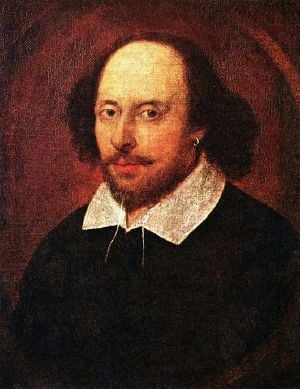
The countries that make up the United Kingdom have provided some of the world's most notable and popular authors, poets and literary figures. The English playwright and poet William Shakespeare is arguably the most famous writer in the English language.
Many world-famous writers and poets lived and wrote in the United Kingdom. England is particularly well represented in the history of the novel. Early English writers who could be described as novelists include Geoffrey Chaucer, Thomas Malory and Geoffrey of Monmouth. These romantic writers were followed by a wave of more realistic writers in later centuries, including Jane Austen (often credited with inventing the modern novel), Charles Dickens, the Brontë sisters, Thomas Hardy, Joseph Conrad, Sir Arthur Conan Doyle and H. G. Wells. In the 20th century, Virginia Woolf, D. H. Lawrence, J. R. R. Tolkien, George Orwell, Graham Greene and Ian McEwan all excelled. Tolkien became one of the most popular writers of the modern world, returning to a Romantic view of fiction. Childrens' author J. K. Rowling has had huge recent success.
Wales and Scotland have also contributed many fine writers to the UK's stock of great literature, particularly in poetry. In the early medieval period, Welsh writers composed the famous Mabinogion. In modern times, the poets R.S. Thomas and Dylan Thomas bring Welsh culture and ideas to a world audience. In Romantic literature, Scotland offers Sir Walter Scott and Robert Louis Stevenson's epic adventures and the leading poet of his day, Robert Burns. Modern Scottish writers like Hugh MacDiarmid and Neil M. Gunn helped develop a distinct modernist and nationalist Scottish voice, sometimes termed the Scottish Renaissance. A more grim outlook is found in Ian Rankin's detective stories set in Edinburgh.
Many authors from other nationalities, particularly the Irish, and from Commonwealth countries, have also lived and worked in the UK. Significant examples through the centuries include Jonathon Swift, Oscar Wilde, Bram Stoker, George Bernard Shaw, Joseph Conrad and Salman Rushdie. Kazuo Ishiguro offers another viewpoint, that of a Japanese author working in the United Kingdom and writing on British themes such as social class.
The history of the theatre in the United Kingdom is particularly vivid. Shakespeare's contemporaries Christopher Marlowe and Ben Jonson add depth to the early theatre. More recently Alan Ayckbourn, Harold Pinter, Michael Frayn, Tom Stoppard and David Edgar have combined elements of surrealism, realism and radicalism. Nobel prize-winning Samuel Beckett is a particularly important Irish playwright who has strongly influenced the theatre of modernism.
Important poets include Geoffrey Chaucer, John Milton, William Blake, Robert Burns, William Wordsworth, Lord Byron, John Keats, Lord Tennyson, T. S. Eliot, R. S. Thomas, Wilfred Owen, John Betjeman, Philip Larkin, W. H. Auden and Ted Hughes.
- Further information: English literature, Scottish literature and Welsh literature
Cinema
The United Kingdom has been influential in the development of cinema. Despite a history of important and successful productions, the industry is characterised by an ongoing debate about its identity, and the influences of American and European cinema.
Design and architecture
The United Kingdom has produced a number of important architects, including Sir Christopher Wren, and Sir Norman Foster along with designers Charles Rennie Mackintosh and Jonathan Ive.
Music
Notable composers from the United Kingdom have included Henry Purcell, Sir Edward Elgar, Sir Arthur Sullivan (most famous for working with librettist Sir W. S. Gilbert), Ralph Vaughan Williams, and Lord Benjamin Britten who pioneered British opera.
The UK was, with the US, one of the two main contributors in the development of rock and roll, and the UK has provided some of the world's most famous rock bands including The Beatles, Led Zeppelin, Queen, Deep Purple, The Who, Pink Floyd, Black Sabbath and The Rolling Stones. The UK was at the forefront of punk rock with bands like The Sex Pistols and The Clash, music in the 1970s as well as the creation of heavy metal along with being the birthplace of the Goth youth culture. The late-1970s and 1980s saw the rise of Post-Punk and New Wave. The so-called 'Second British Invasion' into the US popular music scene took place from 1982 to 1984 when UK bands flooded the US Billboard charts. In the mid to late-1990s, the Britpop phenomenon saw bands such as Radiohead, Oasis and Blur attain considerable national and international success. The 1990s also saw the rise of major Welsh bands such as The Stereophonics and Manic Street Preachers. The UK is also at the forefront of electronica, with British artists such as The Prodigy and The Chemical Brothers helping this mainly underground genre to cross over into the mainstream (having originated in the early-90's with techno bands such as Orbital). Also British pop producers Stock Aitken Waterman - dominated the charts in the late-80's and early-90's with their instantly recognisable brand of pop from acts including today's pop superstar, Kylie Minogue. The 1990s charts were also dominated by the boy band phenomenon, with groups such as Take That thriving amongst countless others. Girl groups like the Spice Girls and Girls Aloud also found considerable success. UK Garage developed out of the urban music scene towards the end of the decade, through popular acts such as the Artful Dodger. The popularity of 'soft rock' bands such as Coldplay has increased, whilst indie music has grown in profile, with Arctic Monkeys enjoying chart success and Pete Doherty gaining newspaper headlines. 'Reality-TV' have also produced a new generation of popstars.
Visual art
Media
The UK has a virtually unrivalled number of media outlets, and the prominence of the English language gives it a widespread international dimension.
The BBC is the UK's publicly-funded radio and television broadcasting corporation, and is the oldest broadcaster in the world. Funded by the compulsory television licence, the BBC operates several television networks and radio stations both in the UK and abroad. The BBC's international television news service, BBC World, is broadcast throughout the world and the BBC World Service radio network is broadcast in 33 languages globally. The major television networks in the UK are BBC One, BBC Two, ITV, Channel 4, Five and BSkyB. The vast majority of digital cable services are provided by NTL:Telewest (created by the merger of NTL and Telewest in March 2006), and free-to-air digital terrestrial television by Freeview.
Radio in the UK is dominated by BBC Radio, which operates 10 national networks and over 40 local radio stations. The most popular radio station, by number of listeners, is BBC Radio 2, closely followed by BBC Radio 1. There are also hundreds of commercial radio stations which are largely local-based offering up a variety of music or talk formats.
Traditionally British newspapers could be split into "quality", serious-minded newspapers (usually referred to as broadsheets because of their large size) and tabloid, popular newspapers. However, because of considerations of convenience of reading, many traditional broadsheets have both switched to a 'compact'-sized format, traditionally used by tabloids. The Sun has the highest circulation of any daily newspaper in the UK, with approximately a quarter of the market; its sister paper, The News of The World similarly leads the Sunday newspaper market [18], and traditionally focuses on celebrity-led stories. The Daily Telegraph, a right-of-centre paper, is the highest selling of the qualities (former broadsheets), having overtaken The Times in circulation figures. [19] The Guardian is a more liberal or left-wing former broadsheet. The Financial Times is the main business paper, printed on distinctive salmon-pink broadsheet paper.
Sport
A number of major sports originated in the United Kingdom, including association football (football, or soccer), rugby football (rugby), golf, cricket, tennis and boxing.
The most popular sport in the UK is association football (known as soccer in North America and Australia), commonly referred to as just "football". The UK does not compete as a nation in any major football tournament. Instead, the home nations compete individually as England, Scotland, Wales and Northern Ireland. It is because of this unique four-team arrangement that the UK currently does not compete in football events at the Olympic Games. However, a united team will probably take part in the 2012 Summer Olympic Games, which are to be hosted in London. The English and Northern Irish football associations have confirmed participation in this team while the Scottish FA and the Welsh FA have declined to participate. It is in this way that rugby football differs internationally to association football, as the England, Scotland, Wales, and Ireland (including Northern Ireland) teams do come together to form the British and Irish Lions, though they do all compete separately internationally for the most part.
The UK is home to many world-renowned football clubs, such as Chelsea, Manchester United, Liverpool, and Arsenal in England, and Celtic and Rangers in Scotland. Clubs compete in national leagues and competitions and some go on to compete in European competitions. British teams are generally successful in European Competitions and several have become European Cup/UEFA Champions League winners: Liverpool (five times), Manchester United (twice), Nottingham Forest (twice), Aston Villa and Celtic.
The UK's most traditional sport is cricket. Cricket was invented in England and is one of the oldest still played sports in the world. There are league championships but most just support the national team. Like with football there is no UK team. There is only an England side but many Welsh and Scottish players have played for England. English cricket grounds include Lords, The Brit Oval, Headingly, Old Trafford, Edgbaston and Trent Bridge.
By far the UK's most successful sport, if judged by the number of wins in the international arena, is rowing which holds a strong presence amongst other rowing nations such as Australia, Canada and Germany. It is widely considered that the UK's most successful sportsperson is Steven Redgrave who won five gold and one bronze medals at five consecutive Olympic Games as well as numerous wins at the World Rowing Championships and Henley Royal Regatta.
Both forms of rugby are national sports. Rugby league originates from and is generally played in the North of England, whilst Rugby Union is played predominantly in Wales, Northern Ireland and Southern England. Having supposedly originated from the actions of William Webb Ellis at the town of Rugby, it is considered the national sport of Wales. In rugby league the UK plays as one nation – Great Britain – though in union it is represented by four nations: England, Scotland, Wales and Ireland (which consists of players from the Republic of Ireland and Northern Ireland). England is the current holder of the Rugby World Cup. Every four years the British and Irish Lions tour either Australia, New Zealand or South Africa.
The Wimbledon Championships are international tennis events held in Wimbledon in south London every summer and are seen as the most prestigious of the tennis calendar.
Thoroughbred racing is also very popular in England. It originated under Charles II of England as the "Sport of Kings" and is a royal pastime to this day. World-famous horse races include the Grand National and the Epsom Derby.
Golf is one of the most popular participation sports played in the UK, and St Andrews in Scotland is the sport's home course. Cricket is also popular; although the popularity of the game is dramatically greater in England than in other parts of the UK, all four constituent nations as of 2006 compete at the One-Day International level – Scotland independently, Wales as part of the English team, and Northern Ireland as part of All-Ireland.
Shinty or camanachd (a sport derived from the same root as the Irish hurling and similar to bandy) is popular in the Scottish Highlands, sometimes attracting crowds numbering thousands in the most sparsely populated region of the UK.
The country is closely associated with motorsport. Many teams and drivers in Formula One and the World Rally Championship are based in the UK. The country also hosts legs of the F1 and World Rallying Championship calendars and has its own Touring Car Racing championship, the BTCC.
British Formula One World Champions include Mike Hawthorn, Graham Hill (twice), Jim Clark (twice), John Surtees (who was also successful on motorcycles), Jackie Stewart (three times), James Hunt, Nigel Mansell, and Graham Hill's son, Damon Hill. British drivers have not been as successful in the World Rally Championship, with only Colin McRae and the late Richard Burns winning the title.
Symbols
- The flag of the United Kingdom is the Union Flag (commonly known as the "Union Jack", though this is technically only correct when at sea). Created from the superimposition of the flags of England (St George's Cross) and Scotland (Saint Andrew's Cross); the Saint Patrick's cross, representing Ireland, was added to this in 1801.
- The national anthem of the UK is God Save the Queen.[20]
- Britannia is a personification of the UK, originating from the Roman occupation of southern and central Great Britain[21]. Britannia is symbolised as a young woman with brown or golden hair, wearing a Corinthian helmet and white robes. She holds Poseidon's three-pronged trident and a shield, bearing the Union Flag. Sometimes she is depicted as riding the back of a lion. In modern usage, Britannia is often associated with maritime dominance, as in the patriotic song Rule Britannia.
- The lion has also been used as a symbol of the UK; one is depicted behind Britannia on the 50 pence piece and one is shown crowned on the back of the 10 pence piece, it is also used as a symbol on the non-ceremonial flag of the British Army. Lions have been used as heraldic devices many times, including in the royal arms of both the kingdoms of England, Scotland and Kingdom of Gwynedd in Wales. The lion is featured on the emblem of the England national football team, giving rise to the popular football anthem Three Lions.
- The bulldog is sometimes used as a symbol of Great Britain.
- Britain (especially England) is also personified as the character John Bull.
- The ancient British landscape, and especially some of its distinctive fauna such as the oak tree and the rose, have long been a widely-used proxy for the visual representation of British identity.
Miscellaneous data
- Cellular frequency: GSM 900, GSM 1800, UMTS 2100
- Cellular technology: GSM/GPRS/EDGE/UMTS/HSDPA
- Date format: DD/MM/YY (example: 22/12/05) or 22 December 2005
- Time format: Generally 12-hour format when spoken or in writing (example: 5.15 pm), 24-hour format is used in some official documentation and in timetables (example: 17:15 or 1715).
- Decimal separator is a full stop: 123.45
- Thousands are separated (formal) by a comma: 10,000. (To avoid confusion with continental countries which use the comma as the decimal separator, a space may be used, e.g. 10 000.)
- Voltage: 230V (+10% / -6%), 50 Hz; Power connector: 3 rectangle pins
- Postal code: LN NLL, LLN NLL, LNN NLL, LLNN NLL, LNL NLL or LLNL NLL. See UK postcodes
ReferencesISBN links support NWE through referral fees
- ↑ "The Act of Union with Wales", SchoolsHistory.org.uk, 7 November 2004. Retrieved 15 May 2006.
- ↑ "The Treaty (or Act) of Union, 1707". Retrieved 15 May 2006.
- ↑ "The Act of Union", Act of Union Virtual Library. Retrieved 15 May 2006.
- ↑ "The Anglo-Irish Treaty, 6 December 1921", CAIN. Retrieved 15 May 2006.
- ↑ Ferguson, Niall (2003). Empire: The Rise and Demise of the British World Order. Basic Books. ISBN 0-465-02328-2.
- ↑ "Modest progress but always on back foot", Times Online, 21 December 2005. Retrieved 16 May 2006.
- ↑ "European Constitution: bad for Britain, bad for Europe", Conservative Party. Retrieved 23 May 2006.
- ↑ "The UK's five tests", BBC News, 21 November 2002. Retrieved 16 May 2006.
- ↑ Immigration fails to stem European population loss. The Guardian (2006-08-17). Retrieved 2006-08-20.
- ↑ 10.0 10.1 A picture of ethnic Britain. BBC (2003-02-13). Retrieved 2006-05-21.
- ↑ Race Equality in the City of Birmingham (
 PDF) pp. 23. University of Oxford (2005). Retrieved 2006-05-21.
PDF) pp. 23. University of Oxford (2005). Retrieved 2006-05-21.
- ↑ Office for National Statistics Press release dated 20th Oct 2005.
- ↑ 'Nearly 600,000' new EU migrants, BBC, 22 August 2006. Retrieved 22 August 2006.
- ↑ International migration: Net inflow rose in 2004, ONS, 15 December 2005. Retrieved 24 August 2006.
- ↑ [1]CIA, 9 September 2006, Retrieved 9 September 2006
- ↑ "Top 500 World Universities (1-100)", Shanghai Jiao Tong University, 2005. Retrieved 15 May 2006
- ↑ "Britain second in world research rankings", Guardian, 21 March 2006, retrieved 14 May 2006.
- ↑ ABC Newspaper Circulation Figures The Times, May 12 2006, accessed May 16 2006.
- ↑ Audit Bureau of Circulation Interactive Analysis National Newspaper Selection - Average Net Circulation (UK) 03-Jul-2006 to 30-Jul-2006. Retrieved 2006-09-04. Lists Daily Telegraph as 844,929 and The Times as 620,456.
- ↑ It is sometimes asserted by those used to a legislative tradition that God Save the Queen is not the actual national anthem of the UK, (or sometimes that it is the de facto national anthem) because no law has ever been passed to say that that is the case. In the UK however such laws are unnecessary; custom, practice and proclamation are sufficient to establish it as the official national anthem.
- ↑ Britannia on British Coins. Chard. Retrieved 2006-06-25.
External links
- Official website of the British Monarchy
- Official website of the United Kingdom Government
- Official tourist guide to Britain
- Official Yearbook of the United Kingdom
- Travel guide to United Kingdom from Wikitravel
Template:British topics
| UN Security Council Members | |
|---|---|
| Permanent Members | |
| China - France - Russia - United Kingdom - United States | |
| Members 2021-2022 | |
| India - Ireland - Kenya - Mexico - Norway | |
| Members 2022-2023 | |
| Albania - Brazil - Gabon - Ghana - United Arab Emirates | |
Template:Commonwealth of Nations
Template:Commonwealth Realms
| North Atlantic Treaty Organisation (NATO) | |
|---|---|
| Belgium | Bulgaria | Canada | Czech Republic | Denmark | Estonia | France | Germany | Greece | Hungary | Iceland | Italy | Latvia | Lithuania | Luxembourg | The Netherlands | Norway | Poland | Portugal | Romania | Slovakia | Slovenia | Spain | Turkey | United Kingdom | United States of America | |
| Group of Eight |
|---|
| Canada | France | Germany | Italy | Japan | Russia | United Kingdom | United States |
Albania · Andorra · Armenia2 · Austria · Azerbaijan1 · Belarus · Belgium · Bosnia and Herzegovina · Bulgaria · Croatia · Cyprus2 · Czech Republic · Denmark3 · Estonia · Finland · France3 · Georgia1 · Germany · Greece · Hungary · Iceland · Ireland · Italy · Kazakhstan1 · Latvia · Liechtenstein · Lithuania · Luxembourg · Republic of Macedonia · Malta · Moldova · Monaco · Montenegro · Netherlands3 · Norway3 · Poland · Portugal · Romania · Russia1 · San Marino · Serbia · Slovakia · Slovenia · Spain3 · Sweden · Switzerland · Turkey1 · Ukraine · United Kingdom3 · Vatican City
1 Has majority of its territory in Asia. 2 Entirely in Asia but having socio-political connections with Europe. 3 Has dependencies or similar territories outside Europe.
Template:EU countries
Template:United Kingdom
Template:British dependencies
Template:UK ties
Template:Atlantic Ocean
| Monarchies | |
|---|---|
| African | |
| Asian | |
| Commonwealth Realms | |
| European | Andorra · Belgium · Denmark · †Liechtenstein · Luxembourg · †Monaco · Netherlands · Norway · Spain · Sweden · Vatican City (Holy See) |
Template:Germanic Europe
Credits
New World Encyclopedia writers and editors rewrote and completed the Wikipedia article in accordance with New World Encyclopedia standards. This article abides by terms of the Creative Commons CC-by-sa 3.0 License (CC-by-sa), which may be used and disseminated with proper attribution. Credit is due under the terms of this license that can reference both the New World Encyclopedia contributors and the selfless volunteer contributors of the Wikimedia Foundation. To cite this article click here for a list of acceptable citing formats.The history of earlier contributions by wikipedians is accessible to researchers here:
The history of this article since it was imported to New World Encyclopedia:
Note: Some restrictions may apply to use of individual images which are separately licensed.

